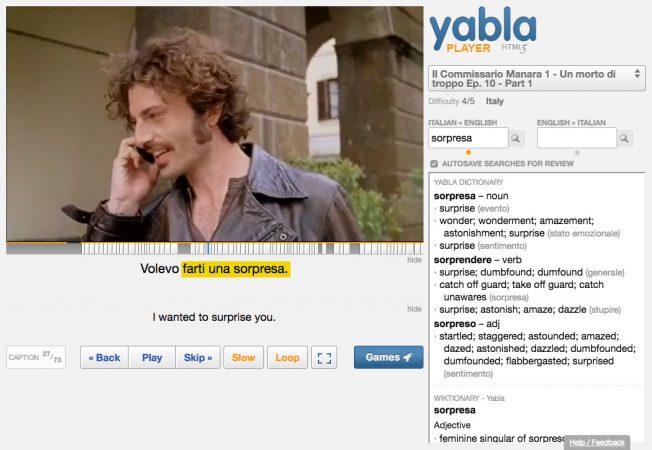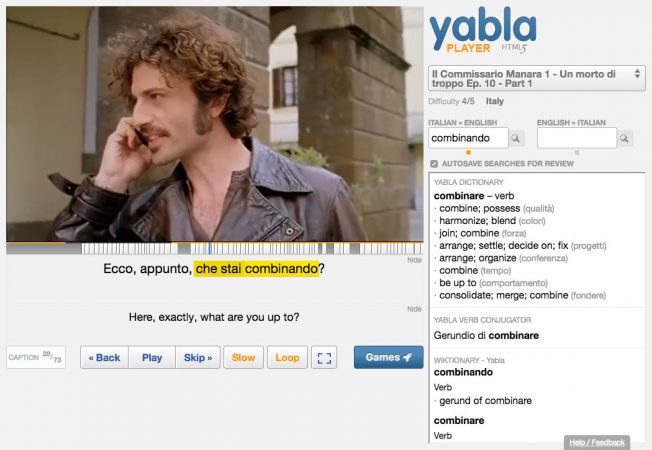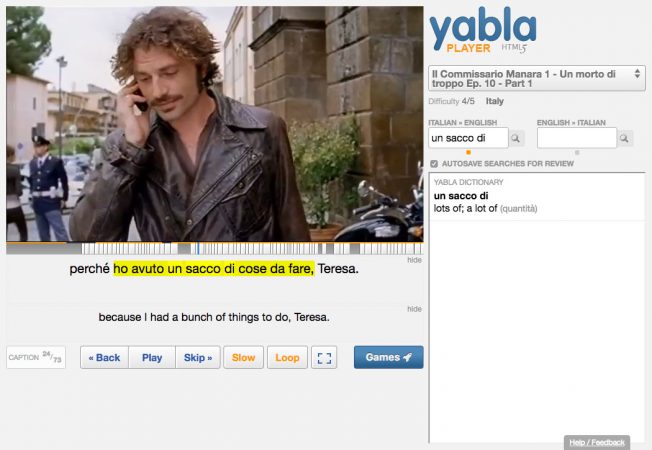Ciao a tutti!
Last week stavamo combinando qualcosa. Now it’s time for a new phrase e voglio farvi una sorpresa!
I mean, well… that’s the phrase.
fare una sorpresa (a qualcuno)
to surprise (someone)
Now, in English, we don’t talk like this – we don’t say I want to do a surprise to you. But that’s what makes this phrase a good example of why, when you’re learning a new language, it’s best to think in entire phrases rather than in discrete parts of speech, like verbs, nouns, and pronouns.
Here are some examples of this phrase in action from Reverso:
Volevo fare una sorpresa ai bambini.
I wanted to surprise the kids.
Vorrei fare una sorpresa a Doug per il compleanno.
I would like to surprise Doug for his birthday.
Note that in our episode of Il Commissario Manara, Teresa tells her brother Luca:
Volevo farti una sorpresa.
I wanted to surprise you.
The pronoun ti, which in this instance means to you, is tacked onto the end of fare. Other examples including the pronoun might look like these:
Ho pensato di farvi una sorpresa.
I thought about surprising you (plural).
Perché mi piacerebbe farle una sorpresa.
Because I’d like to surprise her.
Pensavo che magari le sarebbe piaciuto fargli una sorpresa.
I was thinking that maybe she would like to surprise him.
Voglio andare a trovare i ragazzi e fare loro una sorpresa.
I want to go visit the kids and surprise them.
Of course, we can also say things like this:
Entriamo un attimo… facciamo loro una sorpresa?
Shall we go in a minute… surprise them?
No… le farò una sorpresa, sarà meglio.
No… I’ll surprise her, it’ll be better.
Solo che… le faccio una sorpresa.
It’s just that… I’m surprising her.
Lara fa una sorpresa a Luca dopo una lunga assenza dalla sua vita.
Lara surprises Luca after a long absence from his life.
Is there someone you want to surprise? Now you can tell them!
C’è qualcuno a cui volete fare una sorpresa? Adesso potete dirglielo!
Di certo non sarà ancora una sorpresa, eh? 😜
Yabla now has 11 full episodes of Il Commissario Manara. With Yabla you will have:
- verbatim subtitles in Italian
- access to English subtitles when you need them
- the ability to turn the subtitles off as you improve
And… this is especially useful… you can slow the video down! Yes! We all know how fast the Italians talk. You know a lot of the words. If you just had a little more time to process them…. Well, now you do!
If you feel your Italian is good enough to watch without Italian (or English) subtitles, this episode of Il Commissario Manara is also available for free from RAI. You will need to fast forward to exactly 48 minutes for the start of Un morto di troppo.





